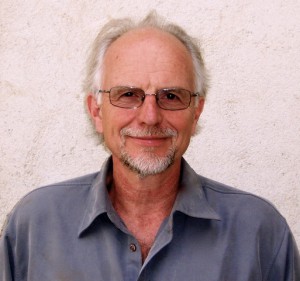
THE SIMPOL SOLUTION
SOCIETY, POLITICS. ECONOMY
2017, June 7th at 10 AM PT/ 7 PM CET
The SIMPOL Solution: Solving the World’s Biggest Problems
WITH JOHN BUNZL AND NICK DUFFELL
We over-use our planet with the way we are living. It is not sustainable and we should change. We think our politicians should decide what to do or not to do in order to maintain the beauty and the “livability” of our beautiful planet. Even if they want to, it is practically impossible for them unless…
Here the book of John Bunzl and Nick Duffell comes in: The Simpol Solution: Solving the World’s Biggest Problems.
In the conversation with both authors we gain an understanding of what every single one of us can effectively do to change the world. These are big words, but actually it is possible. And everyone of us can also re-gain his or her personal power in our democratic nations which is not limited to simply voting for a political party. The approach of Simpol, even if adopted only by a critical number of people, would completely change our political systems and give back decision power to all of us – if we are ready to engage.


STREAMED LIVE HERE on June 7th, 2018
HEIDI´S INTRO TO THE SHOW
Our world is facing huge challenges today and many people think that our governments or businesses are evil because they don’t do anything to effectively save the planet from exhaustion. But how should they change things in a drastic way by themselves? Some countries in Europe have governments who have “green” values on their flags, they do something like recycling or a deposit for plastic bottles. But these are tiny scratches on the surface, better than nothing, but not really able to change anything in the way it would be needed so badly.
Why is it that single countries or entities cannot do anything really effective without risking suicide, without being overrun by others who do not implement practices in favor of reducing the risk factors? It should be obvious that within our economic system those who spend money on the quality of life on our planet would immediately lose in the competitive run for a good place in the market because their good, obviously would cost more.
So how could we succeed despite of that? If everybody did the same steps for change at the same moment. And the recipe for that is SIMPOL.
ABOUT JOHN BUNZL
John Bunzl is a director of an international textile company, a writer and international campaigner with a simple and powerful vision for more effective global cooperation. For over a decade he has worked with policy-makers and politicians, academics and non-governmental organizations, activists and citizens around the world to promote and inspire more effective cooperation.
From the behavioural and evolutionary science behind why we cooperate to the political implications of a world without adequate binding international agreements, John is interested in finding cooperative solutions to our most challenging problems.
In 2000 John founded the International Simultaneous Policy Organization (ISPO) and launched the Simultaneous Policy (Simpol) campaign www.simpol.org John is a regular contributor to the Huffington Post and has spoken at various TEDx events. He has also presented to the World Social Forum, the World Trade Organization, the Schumacher Society and at various universities including the London School of Economics.
ABOUT NICK DUFFELL
Nick Duffell has practised psychotherapy for 30 years and is the author of a number of books. He now calls himself a psychohistorian and is committed to bridging the gap between psychological and political thinking. He is particularly interested in promoting a depth psychology perspective of issues that affect our public life very deeply such as identity and emotions, fear and vulnerability, but about which political commentators currently lack the means to properly to address.
Nick’s recent work includes ‘The Simpol Solution: A New Way to Think about Solving the World’s Biggest Problems’, with John Bunzl (Prometheus, 2018) and ‘Wounded Leaders: British Elitism and the Entitlement Illusion – a Psychohistory’, (Lone Arrow Press, 2014). He contributed ‘Towards Current Affairs through an Emergent Psychology of the Heart’ in ‘Humanistic Psychology: Current Trends, Future Prospects’ (Routledge, 2017) and to ‘The Political Self,’ (Karnac, 2016). He was recently made an Honorary Research Associate at University College London. He lives between London and the wilds of SW France.
AUTHOR WEBPAGES
www.simpol.org
www.johnbunzl.com/
www.genderpsychology.com
www.creativecouplework.com
www.boardingschoolsurvivors.
http://www.andrewsamuels.com/
AUTHOR RESOURCES
CLICK ON THE LINKS BELOW FOR THE BOOKS WRITTEN BY OUR GUESTS
John and Nick are looking for people who would review the folloring books
The Political Self: Understanding the Social Context for Mental Illness





